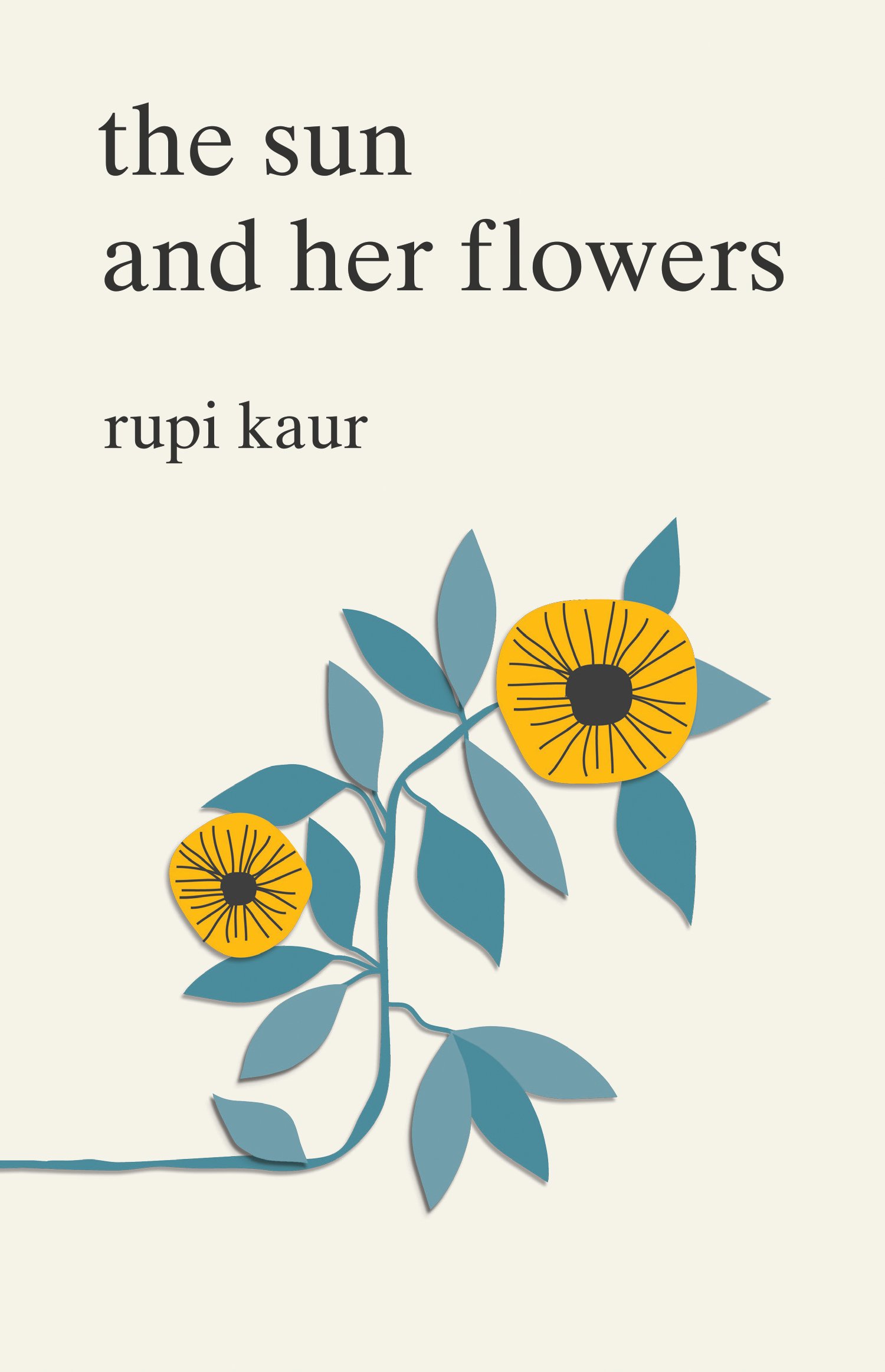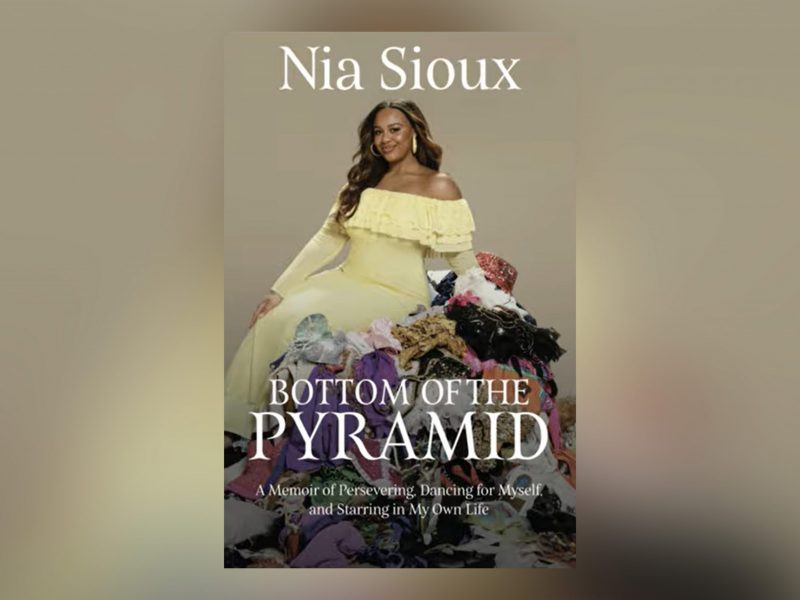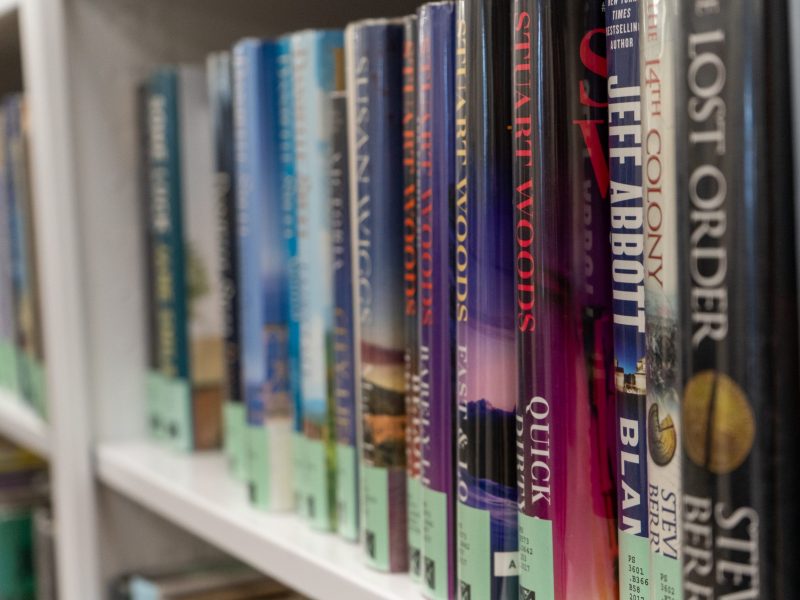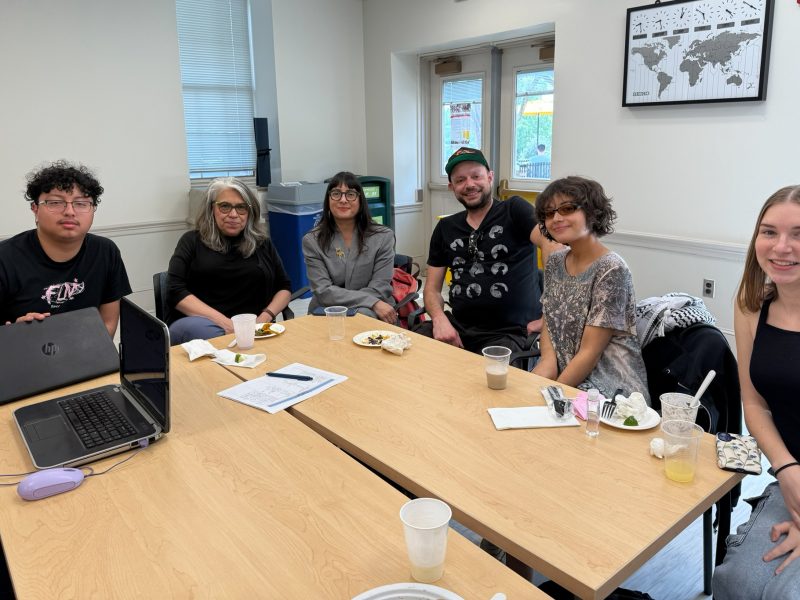When news of an amazing collection of prose by the name of milk and honey circulated my high school, I was skeptical. What topic hadn’t already been written about in verse? Was this Rupi Kaur as great as everyone said? With my cynicism, I avoided the book on Amazon until about a month ago when I took a deep breath, shut my eyes in resignation and clicked the “Buy Now” button.
When the book arrived, the velvety black matte with hand-drawn bees laid in all its glory in my palms, and my heart skip a beat. I finished milk and honey in just five hours. I read it once all the way through: No tabbing, no dog-earing, nothing. Then I read it again, and did all of the above. (I know, gasp!) And then I sat down in front of my laptop and purchased Kaur’s sequel, the sun and her flowers.
Like milk and honey, Kaur’s newest collection, the sun and her flowers, explores love, loss and mental illness in a way that is deeply heartfelt, relatable and beautifully refreshing. The varying length of every poem captures the reader’s attention, yet the complexity of each one touched me in a way “The Red Wheelbarrow” by William Carlos Williams never has. While the sun and her flowers is a pseudo-sequel to her first book, it explores topics much deeper than usual relationship topics.
In fact, my favorite section of the collection was the chapter titled “rooting,” where Kaur talks about her own family life. Her parents were from Punjab, India and immigrated to Canada, where they struggled to provide for Kaur and her siblings. She talks about the long-distance relationship her parents had to maintain for years, the bricks her father had to carry to provide sustenance and the suffocation her mother felt in a world so far and different from her own.
One particular poem in “rooting” that spoke out to me more than the others was “broken English.” Kaur tells readers who have immigrant parents to not be ashamed of their parents’ broken English. After all, they sacrificed their lives for us. There were moments in my life where I wanted a “normal” mother, one who spoke fluent English like me. That hope rendered me more guilty than I ever wanted to admit. Kaur wants us to snap out of this mindset, which was a wonderful reminder I needed to hear. In another poem, Kaur talks about how her mother never really left behind their country, for she “[searches] for it/ in foreign films/ and the international food aisle[.]” Woah.
Some readers argue that while milk and honey and the sun and her flowers have become trailblazers for women voices in prose, Kaur’s poems may be a little too ‘Tumblr’ in the sense that some of them sound like ones we’ve all heard before. And it’s true. Not all of Kaur’s poems are 100 percent original; the main essence of them are similar to the multitude of others floating around in cyberspace. Take, for example, the cliché on page 41: “you’re everywhere/ except right here/ and it hurts.”
Even if some of the poems in the sun and her flowers seem like recycled oldies-but-goodies, there’s no denying that Kaur is brilliant. She’s not afraid to speak her mind and talk about taboo subjects, such as female infanticide, immigration, rape, abuse, mental illness and sexual empowerment. Her poems contain difficult subject matter and can be hard to read, but they all hold a unique power that can and will speak to many people around the world.
4/5 shells



